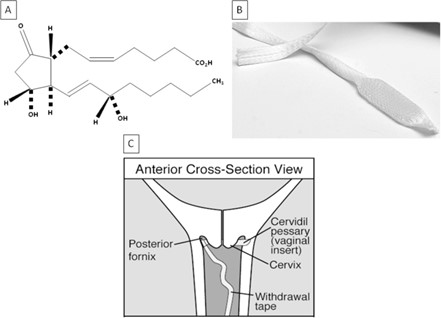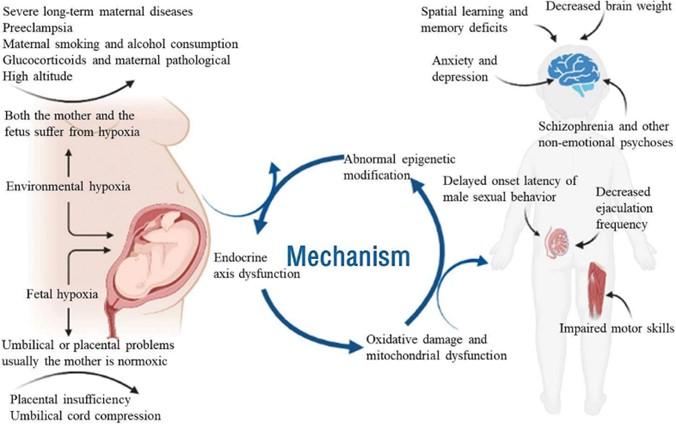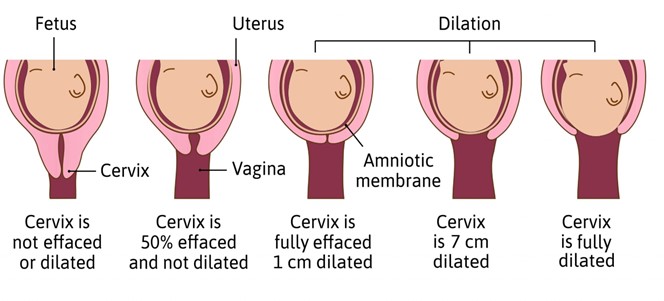A nurse is preparing to administer dinoprostone gel to a client who is pregnant. The client asks the nurse about the purpose of the medication. Which of the following responses should the nurse make?
Dinoprostone stimulates uterine contractions.
Dinoprostone promotes softening of the cervix.
Dinoprostone relaxes uterine contractions.
Dinoprostone assists with ending the pregnancy.
The Correct Answer is B
Choice A reason:
Dinoprostone stimulates uterine contractions is incorrect, as this is not the primary purpose of the medication. Dinoprostone is a prostaglandin that can induce labor by ripening the cervix and enhancing uterine contractility, but it is not used solely for stimulating contractions.
Choice B reason:
Dinoprostone promotes softening of the cervix is correct, as this is the main purpose of the medication. Dinoprostone is used to prepare the cervix for labor by increasing its softness, dilation, and effacement. This can facilitate the descent of the fetus and shorten the duration of labor.
Choice C reason:
Dinoprostone relaxes uterine contractions is incorrect, as this is the opposite effect of the medication. Dinoprostone can increase uterine tone and frequency, which can help initiate or augment labor. The nurse should monitor the client for signs of uterine hyperstimulation or fetal distress.
Choice D reason:
Dinoprostone assists with ending the pregnancy is incorrect, as this is not the intended use of the medication. Dinoprostone can be used to terminate a pregnancy in some cases, such as fetal demise or missed abortion, but it is not routinely used for this purpose. The nurse should explain to the client that dinoprostone is used to induce labor and not to end a pregnancy.

Nursing Test Bank
Naxlex Comprehensive Predictor Exams
Related Questions
Correct Answer is A
Explanation
Choice A reason: Position the client on her side is correct, as this is the first action the nurse should take according to the ABCDE priority framework. Late decelerations are symmetrical decreases in the fetal heart rate that begin after the peak of the contraction and return to baseline after the contraction ends, which indicate uteroplacental insufficiency and fetal hypoxia. Positioning the client on her side can improve blood flow and oxygen delivery to the placenta and fetus by relieving pressure on the vena cava and aorta.
Choice B reason: Elevate the client's legs is incorrect, as this is not a priority action for a client who has late decelerations. Elevating the legs can increase venous return and cardiac output, but it can also reduce blood flow and oxygen delivery to the placenta and fetus by compressing the vena cava and aorta.
Choice C reason: Administer oxygen via face mask is incorrect, as this is not the first action the nurse should take, although it is important to do later. Administering oxygen can increase oxygen saturation and delivery to the placenta and fetus, but it does not address the cause of uteroplacental insufficiency or improve blood flow.
Choice D reason: Increase the infusion rate of the IV fluid is incorrect, as this is not the first action the nurse should take, although it may be indicated later. Increasing the infusion rate of IV fluid can expand blood volume and improve placental perfusion, but it does not address the cause of uteroplacental insufficiency or improve blood flow. The nurse should obtain a provider's order before increasing the IV fluid rate.

Correct Answer is D
Explanation
Choice A reason: Amniotic fluid in the vaginal vault indicates that the membranes have ruptured, but this does not necessarily mean that the client is in labor. Some women may have a slow leak of amniotic fluid for hours or days before labor begins. Rupture of membranes also increases the risk of infection, so the nurse should monitor the client's temperature and fetal heart rate.
Choice B reason: Contractions every 3 to 4 minutes are a sign of labor, but they are not enough to confirm it. The nurse should also assess the duration and intensity of the contractions, as well as the client's response to them. Some women may have false labor contractions, also known as Braxton Hicks contractions, which are irregular, mild, and do not cause cervical changes.
Choice C reason: Pain just above the navel is not a typical sign of labor. It may indicate other problems, such as placental abruption, uterine rupture, or fetal distress. The nurse should report this finding to the nurse midwife and check for other signs of bleeding, shock, or fetal compromise.
Choice D reason: Cervical dilation is the most reliable indicator of labor. It means that the cervix is opening and thinning out to allow the passage of the fetus. The nurse should measure the cervical dilation in centimeters and document it along with the station and effacement of the cervix.

Whether you are a student looking to ace your exams or a practicing nurse seeking to enhance your expertise , our nursing education contents will empower you with the confidence and competence to make a difference in the lives of patients and become a respected leader in the healthcare field.
Visit Naxlex, invest in your future and unlock endless possibilities with our unparalleled nursing education contents today
Report Wrong Answer on the Current Question
Do you disagree with the answer? If yes, what is your expected answer? Explain.
Kindly be descriptive with the issue you are facing.
